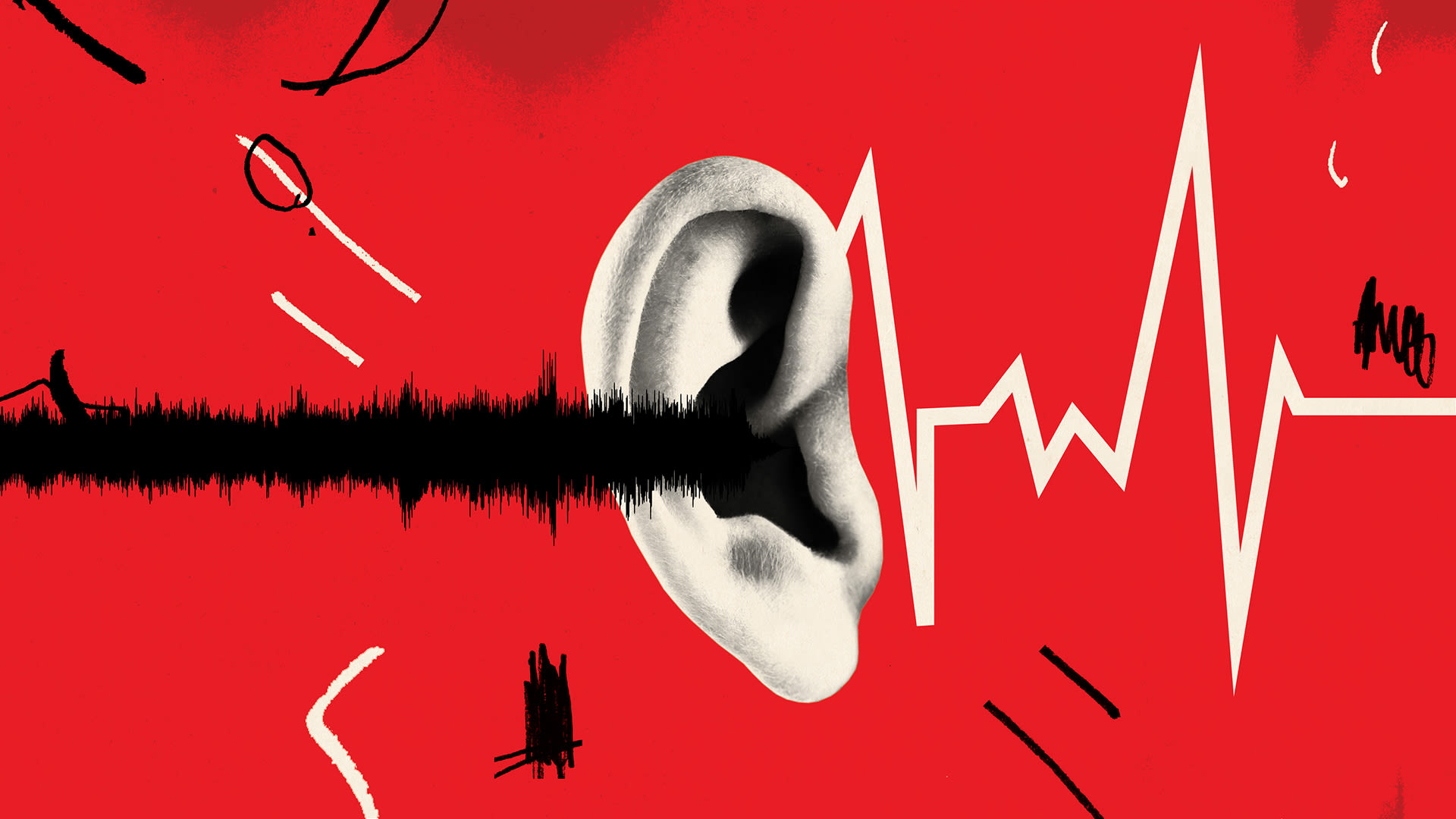THE ACCENT, SMOKING, BEER AND RED TAPE
Monday, November 29, 2021
When The Curmudgeon moved to Andalucía to live a dozen or so years ago, there were just three things he did not like about the place. The andaluz accent, smoking in bars and the beer. Oh, and the bureaucracy …!
Now that he’s been here a while, things have changed. He’s grown accustomed to the locals speaking fast and without consonants; smoking in indoor spaces has been outlawed (also outdoors post-Covid-19); and he’s gradually learning how to cut through all the red tape. But … what about the beer situation?
No good beer here
Decent beer is about the only thing I miss living here in Spain. The best beer in the world without question, in my view, is a cask-conditioned ale from one of the hundreds of micro-breweries in the UK. Closely followed by German Weizenbiere, Czech lagers like Budweiser Budvar – not the American piss of the same name that is made by Anheuser-Busch – and Belgian beers, if you like fruit in your tipple.
With few similar alternatives here in Spain, except for expensive imports, Mahou is the least appalling of the branded lagers; Alhambra, Estrella Damm, Amstel and San Miguel are also drinkable. Cruzcampo is the worst of the lot, in my opinion.
For home drinking I prefer to spend 28c per can for Steinburg (Mercadona), the Aldi own brand Karlsquell or LIDL’s Argus, both at 25c, rather than 50-60c or more for a branded beer. Served very cold you don’t notice the difference. And interestingly all three of those marcas blancas, own-label beers, are brewed by the same company, Font Salem S.L. in Valencia.
Real ale comes to Spain
It’s good to know that there are some quasi-real ales being brewed in Spain now. I say quasi, because they really have to be served as keg beers under pressure because of the climate.
I’ve recently heard of at least three in Andalucía alone.
First of all there’s the Fábrica de Cerveza Kettal (FCK), located in Los Barrios (Cádiz). A brewpub claiming to produce English-style real ale, the brewers use traditional methods and all natural ingredients.
FCK claims to be the first micro-brewery in living memory in the province. According to owners Mercedes Lynch and Tim Revill, FCK is part of the revolution against mass-produced products, which is growing throughout the food industry.
“Consumers are growing aware that many foodstuffs contain all sorts of chemical additives to give them the flavour and appearance that big companies think the average consumer expects. At FCK we use the flavours that nature provides, with no unnatural additives.”
FCK’s Brewmaster, Australian Jonah Jones, adds: “We brew English-style ales, which are kegged and served chilled and under pressure. CAMRA would not approve, but cask beer just will not survive at this latitude and temperature.”
So, there we have it – it’s not real ale at all, although, having tried it, I can confirm that it tastes better than anything else on offer down here.
FCK has a website at www.fabricadecervezakettal.com
The Saxon Brewery in Vélez Rubio, Almeria, supplies various bars in Almeria and Murcia with UK style real ale. They don’t have a website but owner Ian Orpe can be contacted at saxonbrewery@gmail.com
La Fábrica in Sevilla is also a brewpub I’d been told about, so, when I happened to be in Sevilla one Sunday in May a few years back, I went to visit.
We got to the Plaza de las Armas and looked around. No sign of it, so I asked in another bar.
La Fábrica? Oh, it shut down about 18 months ago. It’s now called Los Olivos, just over there.
Disappointed, we went there anyway, as the thermometer was hitting 40 degrees and we were hot and thirsty. It’s just an ordinary bar now, but at least it had Mahou on draft, my favourite of the Spanish lagers.
My disappointment at the disappearance of one of the few real ale outlets in Andalucía was tempered, however, when I learned the following day on Facebook that Bar Allioli in Jimera de Líbar, further down the Guadiaro river valley from where I live, had launched its own real beer, Allioli Weisse Bier (sic), a German-style wheat beer.
Brewed by the afore-mentioned FCK brewery I have since tried it and can vouch for its excellence. Bar Allioli has a website at at www.barallioli.com
Well done, Paul Darwent!
90 cask ales
Giving the lie to the assertion that the climate here is unsuitable for cask ales, Realbeeria is a distribution company which currently supplies up to 90 UK cask ales to selected outlets in Almeria, Murcia and Alicante provinces. Their website is www.realbeeria.co.uk
I wonder if there are more real ale developments out there? Do let us know!
Stop Press
In the last few years craft beers, cervezas artesanales, have become all the rage in Spain.
Madrid and Toledo (Castilla La Mancha) boast several local craft breweries. Ronda (Málaga) has a couple, Jaén and Valencia also.
In addition, the big companies like San Miguel/Mahou, Alhambra, Estrella and even the dreaded Cruzcampo (Heineken-owned by the way – enough said) are brewing a variety of styles, including Pale Ale, India Pale Ale, Tostada, Golden, malt-flavoured and even Stout.
My current favourites are El Águila sin filtro (Madrid), El Alcázar (Jaén), Alhambra fermentación lenta (Sevilla), Turia (Valencia) and good old Estrella Galicia. A tercio (33 cl) costs between 1,50€ and 2,50€.
Things are looking up!
Then I was diagnosed as a Type 2 diabetic, so I can no longer drink alcohol!
My doctor conceded that a small beer on special occasions would do me no harm. Well, despite my sometimes curmudgeonly nature, I think every day is special!
¡Salud!
 2
Like
Published at 6:28 AM Comments (1)
2
Like
Published at 6:28 AM Comments (1)
Why Can’t We Have the Vote?
Saturday, November 27, 2021
By The Curmudgeon
 THE ISSUE of universal suffrage has raised its head once again, over a century after Emily Davison threw herself in front of the King’s horse at the 1913 Epsom Derby as a protest against women not having the vote in Britain. THE ISSUE of universal suffrage has raised its head once again, over a century after Emily Davison threw herself in front of the King’s horse at the 1913 Epsom Derby as a protest against women not having the vote in Britain.
This time, however, it’s about both men and women – men and women who live in a country other than their own.
At present in Spain, and elsewhere in the European Union, foreign residents from other EU member states are effectively disenfranchised, unless, in the case of Spain, they are empadronado, ie registered and on the electoral roll, when they may vote in local and European elections, but not in national ones.
These arrangements are similar in other member states, although a few years ago the then president of France Nicolas Sarkozy was planning to give French residents of London an MP of their own, similar to residents of France’s overseas territories like Guadeloupe, Martinique, Réunion, etc.
In the light of this, Giles Tremlett, the distinguished journalist and writer, and former Madrid correspondent of the Guardian, wrote an interesting piece in that paper, proposing an MP for the Costa del Sol.
His main argument was that as a 20-year resident of Spain and a taxpayer, he does not have the right to vote in national elections in either Spain or the UK.
 He wrote: “Why not allow Britons living in [other parts of] Europe to vote in the national elections of their host country? Unfortunately neither the UK nor any other country in Europe seems to want that. As a result, I live in Madrid and pay taxes to the Spanish exchequer but have no say in how my tax money is spent. He wrote: “Why not allow Britons living in [other parts of] Europe to vote in the national elections of their host country? Unfortunately neither the UK nor any other country in Europe seems to want that. As a result, I live in Madrid and pay taxes to the Spanish exchequer but have no say in how my tax money is spent.
He continued: “And therein lies another problem. For not only am I prevented from voting in a Spanish general election, but, as I have lived abroad for more than 15 years, I have no right to vote in the UK either. I pay tax but cannot vote. Whatever happened to "no taxation without representation"?
Tremlett pointed out that about a million Britons live for most or all of the year in Spain. Of these, 352,000 have registered at Spanish town halls as being fully resident. Hundreds of thousands of Britons live elsewhere across the European Union.
Those who left the country in the past 15 years, the vast majority, can vote in UK elections. Most, however, do not bother. This is hardly surprising, since they must send their postal vote to the place where they last lived in Britain. People now living in Marbella, Torrevieja or Barcelona thus end up voting for candidates who are only interested in, say, the problems of Luton, Lambeth or Dumfries. That is not fair to them. What do they care, or know, about hospitals, post offices and planned ring roads a thousand miles away? It is also not fair to the people living in those constituencies.
British communities abroad have their own problems, especially post-Brexit.
Here in Spain, we worry about pensions, health care, the bureaucracy and the exorbitant price of consular services. Even the winter fuel allowance - yes, payable in some circumstances - mattered to us. [Alas, that has long since been withdrawn, cancelled by David Cameron when he was prime minister of the Conservative/Liberal Democrat coalition government.] Many of those suffering the catastrophic effects of a weak pound would like Britain to be in the euro. Many more of us have problems with local housing laws that they insist break EU rules.
Tremlett pointed out: “Britain frets about immigration but cannot be bothered to think about emigration. It should do. Of the hundreds of thousands of diaspora Britons with the right to vote, only 12,800 are registered to do so. Some 200,000 Britons move abroad every year, according to a study by the Institute for Public Policy Research. About 10% of all Britons, or 5.5 million people, live outside the country. ‘The UK government's lack of attention to its large diaspora stands in contrast to the measures being taken in other countries,’ the study noted. ‘In the UK, talk of establishing a member of parliament for the Spanish costas, a new ministry for Britons living abroad or even a special parliamentary inquiry would most likely be laughed down.’”
Following the publication of Tremlett’s article, the Guardian website was inundated with posts and the entry was closed after 118 comments.
Unfortunately many of the posts were very negative. As a British-born man who worked his entire career in the UK, but who has now, as an early retiree, decided to live in Spain, I was shocked by the many ill-informed and vitriolic comments posted there.
 The “abuse” that has been hurled at him on the Guardian website for daring to raise an extremely important issue is typical of the garbage I regularly come across in English-language newspapers and on their websites down here in southern Spain. The “abuse” that has been hurled at him on the Guardian website for daring to raise an extremely important issue is typical of the garbage I regularly come across in English-language newspapers and on their websites down here in southern Spain.
The excellent Olive Press website has unfortunately attracted an annoying cadre of bitter and twisted know-alls who post negative comments about Spain and the Spanish at every opportunity.
The Euro Weekly News continues to feature a weekly column by Leapy Lea and letters from his Daily Mail-reading acolytes who write in to support his racist and anti-Spanish rantings.
As far as I’m concerned the volley of criticism aimed at “ex-pats” – no, we’re actually immigrants, and uninvited guests, to boot – is all about envy and small-mindedness.
Although English-born, I am a fluent Spanish and German speaker. As a result, I am blessed with three separate social lives related to each language group, all of which I find fascinating, albeit different.
Within those groups, most people, irrespective of their nationality, are mono-lingual. But I don’t think any the less of them. I happen to be a trained linguist; they are trained carpenters, electricians, police officers, sales executives, hoteliers, archtects, doctors, all skilled in their own fields. Many of them have tried to integrate and learn Spanish and are successful to varying degrees. But they are all committed to living here, are resident, registered on the padrón and, on the whole, pay their taxes here.
There are indeed stereotypical British ex-pats and I chuckled at Frank Little’s five definitions on the Guardian website thread, because I know people who fit each of the categories. Unfortunately, there wasn’t one into which I and many of my friends would fit.
Nevertheless, the answer to this representation problem is quite simple and was identified by many posters on the Guardian website. If, as an EU national, you are tax resident in another EU country, you should have the right to vote in all elections, local, national and European in that country, and not in the country of your birth. Simple, straightforward, no argument.
Except that policy wouldn’t help British residents from 1 January 2021 onwards, since we’ll no longer be EU citizens. What about letting all foreign, tax-paying residents have the vote in national elections. Doesn’t that make sense?
The sooner Brussels takes note of this and changes the law to remove the current anomalies, the better. And as for those who criticise, on the grounds of envy, those of us who have legitimately moved countries within the EU, well, perhaps we should just ignore them.
 2
Like
Published at 5:31 PM Comments (0)
2
Like
Published at 5:31 PM Comments (0)
MORE AND MORE SPANISH NOISE
Saturday, November 27, 2021
Having written recently about how noisy Spain is – something described by many a writer on Spain going back decades – The Curmudgeon has discovered some interesting new noises that have recently added themselves to the local repertoire around where he lives in the Serranía de Ronda.
Natural noises
Natural noises that have come to our attention are The Frog Chorus – quite deafening, but somehow bearable, cos it’s the sound of nature.
Woody Woodpecker in the next door pine tree likewise. Don’t know how he doesn’t get a headache?
Cooing doves break the silence from time to time as does the high-pitched zzzzp! of a mosquito in the room at night, despite our attempts to keep them out. Another night sound is our rescue dog snoring as she dreams her sweet doggy dreams.
And, in the summer months, there is a peacock who serenades us sporadically!
Donald Duck next door also contributes to the decibel levels. And, in addition to his constant quacking, he seems to enjoy crapping in our swimming pool, when he goes for his daily dip.
Early hours
Artificial or manufactured noise largely comes in the early hours.
The daily whoossshhh of the automatic lawn sprinkers before dawn, followed by the sound of reveille at the Spanish Foreign Legion over the road, and the swimming pool filter slowly doing its job of keeping the pool water fresh and clean.
7.45 am and it’s the toot of Adrián the baker’s van as he rolls up outside to sell his freshly baked bread.
Weekend noises
The weekends are marked by the unmistakeable low roar of the burners on the hot air balloons that fly over Algunlugar, and the wedding celebrations that go on till dawn on most Saturday nights at one, or both, of the nearby hotels.
There is also my new guiri neighbour, who has a collection of cars, motor cycles, quad bikes and God knows what else? He likes to use these at the weekend. None of these vehicles seems to have a functioning exhaust!
Am I complaining?
Of course!
Well, not really!
 0
Like
Published at 3:09 AM Comments (0)
0
Like
Published at 3:09 AM Comments (0)
SPANISH NOISE
Saturday, November 27, 2021
 Many a writer on Spain has commented on what a noisy country it is: Ernest Hemingway, for example, and George Orwell, Washington Irving, James Michener and Giles Tremlett, the author of Ghosts of Spain. According to the World Health Organisation (WHO) Spain is the second noisiest country in the world after Japan. The Curmudgeon is not surprised. Here he gives his assessment of the noise in his adopted land. Many a writer on Spain has commented on what a noisy country it is: Ernest Hemingway, for example, and George Orwell, Washington Irving, James Michener and Giles Tremlett, the author of Ghosts of Spain. According to the World Health Organisation (WHO) Spain is the second noisiest country in the world after Japan. The Curmudgeon is not surprised. Here he gives his assessment of the noise in his adopted land.
Noise is all around
 Well, it is noisy, isn’t it? Everywhere you go it’s loud: people talking on the bus, in a bar, on the street, even in church. But there are other noises that are unique to Spain: the barking of distant dogs, the braying of a donkey, the crowing of cocks and the clucking of hens, the Sunday morning trailbike phutting loudly across the land, the tooting of a night-time train as it passes, the blaring of radios and TVs through open windows, the sound of gleeful children playing. Well, it is noisy, isn’t it? Everywhere you go it’s loud: people talking on the bus, in a bar, on the street, even in church. But there are other noises that are unique to Spain: the barking of distant dogs, the braying of a donkey, the crowing of cocks and the clucking of hens, the Sunday morning trailbike phutting loudly across the land, the tooting of a night-time train as it passes, the blaring of radios and TVs through open windows, the sound of gleeful children playing.
When we moved house ten years ago we got all of the above straightaway. But in addition we’ve had the sound of heavy lorries chugging up the hill into town, the Foreign Legion in the nearby barracks practising drumming, chanting and marching for hours on end, and the clanging of the bells on the several level crossings in the area.
Health hazard
So, what effect does all this Spanish noise have on people? According to the WHO three out of every four Spaniards suffer from excessive noise levels. Of those, more than nine million have to tolerate levels of noise above 65 decibels, the acceptable limit. In Europe 20 per cent of the population – some 80 million people – are exposed to unacceptable levels of noise. Noise causes hearing loss and can have a negative effect on the quality of life of those who have to put up with it.
Here in Spain, things are beginning to improve, however. There have been recent court rulings imposing fines on discotheque owners for making too much noise too late at night. Councils are also banning the botellón, the gatherings of young people in public places to drink and listen to loud music until the early hours.
Who is responsible?
In theory, the policíá municipal is in charge of handling noise-related complaints, although whether or not they are actually able to do much more than register your complaint is another question. Probably the most effective way to avoid noise problems is to establish close relationships with neighbours and to handle any resulting problems with discretion and tender loving care.
 As for me, I’m not used to noise at all, for, since I became old enough to be aware of it – in other words since I became an adult and a parent – I’ve always lived in quiet places. In a cul-de-sac next to a park in a Cheshire village, up a mountain in North Wales, and next to a football ground in a northern English town, where there were only two matches a week to break the silence. Even in Spain, I’ve only lived in quiet places (quiet for Spain, that is!): in a peaceful barrio on the edge of town and up the hill where no cars can reach in a pueblo blanco in the mountains of the Serranía de Ronda. As for me, I’m not used to noise at all, for, since I became old enough to be aware of it – in other words since I became an adult and a parent – I’ve always lived in quiet places. In a cul-de-sac next to a park in a Cheshire village, up a mountain in North Wales, and next to a football ground in a northern English town, where there were only two matches a week to break the silence. Even in Spain, I’ve only lived in quiet places (quiet for Spain, that is!): in a peaceful barrio on the edge of town and up the hill where no cars can reach in a pueblo blanco in the mountains of the Serranía de Ronda.
But now that we’ve moved, auditory hell has been let loose! But as I get older and increasingly hard of hearing, it doesn’t seem to matter that much. Everything else is perfect and I guess you get used to the noise – in the end!
© The Curmudgeon
Tags: ban, barking of distant dogs, blaring of radios and TVs, botellón, braying of a donkey, chanting, clanging, crowing of cocks, clucking of hens, decibel, drumming, Foreign Legion, gleeful children playing, hard of hearing, Hemingway, Irving, level crossings, lorries chugging up the hill, marching, Michener, noise pollution, Orwell, policia municipal, tooting of a night-time train, trailbike, Tremlett, WHO
 2
Like
Published at 2:49 AM Comments (0)
2
Like
Published at 2:49 AM Comments (0)
What I hate about Spain
Friday, November 26, 2021
There are a few things that The Curmudgeon hates about living in Spain. Yet he can only come up with just half a dozen things that really get on his nerves, even after living here for 13 years.
Corruption
Sometimes you get the impression that every politician and government official is corrupt. That may have been true once upon a time, but even now, at a lower level of corruption, you can often avoid paying IVA if you pay cash, including with lawyers, gestores or just by asking the provider of a service. How they get away with it defeats me, yet such people are often highly esteemed by large parts of the population.
Bureaucracy
Spanish red tape, el papeleo, drives us all mad, Spaniards and foreigners alike. Las cosas de palacio van despacio, say the Spanish, as if by giving the ponderous bureaucratic system an excuse, by way of a popular saying, that makes it acceptable. In the year before the pandemic, for example, no one managed to get Spanish residency or their TIE (tarjeta de identidad de extranjero) because the twenty-five thousand people whose job it was to sort out the paperwork instead took a disturbingly long lunch-break!
Some unfortunate people are forced to live in a house with no water or electricity for a number of years because of some elusive bit of paper trapped in the bottom of a filing cabinet belonging to a funcionario who has been off work with a bad back for the last five years!
I try and live with the system, since I love it here. Even though my German wife hates HP Sauce and Marmite, and she has never had a Yorkshire pudding or a mushy pea, that’s okay. She doesn’t even like a nice cuppa, because English tea is black, and she only likes green tea or other fancy infusions, but never mind.
Noise
I’ve already written about this (on another website), as have writers like Ernest Hemingway, George Orwell, Washington Irving, James Michener and Giles Tremlett. The longer I am here, the less I notice the rushing train, the noisy traffic, the croaking frogs, the loud farm machinery and Spaniards talking loudly. But I cannot get used to barking dogs, especially at 4.00 in the early morning! It’s a fact that Spain is the second loudest country in the world after Japan.
Littering
The amount of litter lying around is astonishing. How can a proud nation like the Spanish wantonly ruin their beautiful country by tossing as much garbage into the countryside as is humanly possible? The beaches, the roadside verges, the streets and the public buildings are covered in debris. Everywhere is thick with plastic, empty beer cans, bottles, cardboard and rubble. And what about the abandoned mattresses, sofas, fridges and old bikes?
Spanish beer
There’s nothing I like better than a good English real ale, or a refreshing German Weissbier. Unfortunately, the former is not really viable in the Andalucían climate, although increasingly German beers are becoming available and at a competitive price.
The problem with Spanish beer is that it’s too gassy and somewhat bitter and can only be consumed ice-cold. Spanish beers are also a bit stronger than their Northern European equivalents, with the notorious exception of beers from Belgium.
Parking
Firstly there are never enough parking places and what there is turns out to be pretty expensive. Increasingly our urban streets are being given over to bar and restaurant terraces or for rubbish skips, meaning less space for us motorists. However, I’ve realised that if you park two abreast, en paralelo, and put your warning lights on, you can get away with this rather anti-social habit. If you’re Spanish, that is. I think guiris are easy meat. ‘I’m sorry, officer, I really am, but I just needed to stop briefly to nip into my bank / buy a lottery ticket / have a very quick coffee with my friend’ won’t really get you off the hook. A 200 euro fine at least!
But, when all is said and done, what are half a dozen gripes, when compared to the endless joys and pleasures of our adopted country?
 2
Like
Published at 6:27 PM Comments (0)
2
Like
Published at 6:27 PM Comments (0)
Spam post or Abuse? Please let us know
|
|